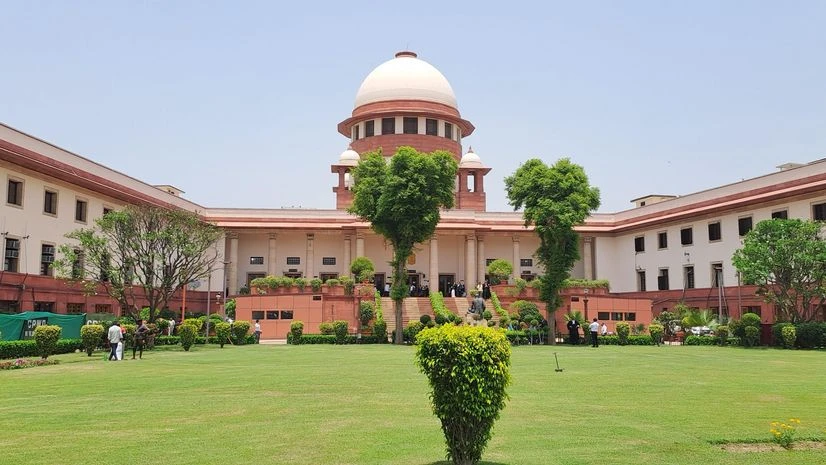The Supreme Court (SC) on Friday ruled that clauses allowing public sector undertakings (PSUs) to unilaterally appoint arbitrators to resolve disputes with private contractors are invalid.
As a result, PSUs will need to modify their contracts to comply with the judgment, which states that unilateral appointment clauses in public-private contracts violate Article 14 of the Constitution (right to equality).
The Constitution Bench, comprising Chief Justice of India (CJI) D Y Chandrachud, Justices Hrishikesh Roy, P S Narasimha, J B Pardiwala, and Manoj Misra, said that while PSUs can maintain a panel of potential arbitrators, they cannot compel the other party to select its arbitrator from that panel.
The case involved the validity of an arbitration clause that stipulates the appointment of an arbitrator from a panel curated by one of the parties — typically a PSU in most cases.
The court ruled that unilateral appointment clauses in public-private contracts fail to ensure the minimum level of integrity required for authorities performing quasi-judicial functions, such as arbitral tribunals.
“Therefore, a unilateral appointment clause is against the principle of arbitration, that is, impartial resolution of disputes between parties. It also violates the nemo judex rule, which constitutes the public policy of India in the context of arbitration. Therefore, unilateral appointment clauses in public-private contracts are violative of Article 14 of the Constitution for being arbitrary, in addition to being violative of the equality principle under the Arbitration Act,” the court held.
The court clarified that the Arbitration Act does not prohibit PSUs from creating panels of potential arbitrators. However, an arbitration clause cannot require the other party to choose its arbitrator from that curated panel.
More From This Section
The court also held that the principle of equal treatment of parties applies at all stages of the arbitration process, including the appointment of arbitrators.
While Justice Hrishikesh Roy partially dissented, asserting that unilateral appointments should not be declared invalid, he stressed the importance of party autonomy.
The case of ECL-SPIC-SMO-MCML, a joint venture (JV) company, and JSW Steel versus South Western Railway & ANR centred on whether an ineligible person can appoint an arbitrator.
In 2017, in the case of TRF versus Energo Engineering Projects, the SC ruled that a person ineligible to serve as an arbitrator cannot appoint someone else as an arbitrator. This decision was reaffirmed in Perkins Eastman Architects DPC versus HSCC (India) in 2020.
However, in Central Organisation for Railway Electrification versus ECL-SPIC-SMO-MCML (JV) (2020), the SC allowed the appointment of an arbitrator by an ineligible person, stating that the facts in that case differed from those in Energo Engineering and Perkins Eastman. This was later condoned by the Karnataka High Court, leading to the appeal.
In 2021, a three-judge Bench led by Justice Nariman referred the issue to a larger Bench. Subsequently, another three-judge Bench led by then CJI U U Lalit also referred the matter to a larger Bench.
The Union, represented by Solicitor General Tushar Mehta, argued that the panel of arbitrators is ‘maintained’ by the PSU/government party, not ‘controlled’. The difference, they argued, is that maintaining the panel ensures the neutrality of the arbitrators.
The respondents contended that a panel unilaterally ‘controlled’ by one party would violate the Arbitration and Conciliation Act, 1996.
Experts believe the court’s decision ensures a more equitable adjudication process.
“After this verdict, PSUs will need to modify their contracts to fall in line with the judgment. Arbitration clauses in contracts that previously required the private party to appoint arbitrators from the PSU-curated panel are no longer valid. This may lead PSUs to adopt institutional arbitration, where the institution appoints arbitrators instead of relying on ad hoc arbitration. Overall, this decision promotes fairness and ensures a level playing field in the adjudication process,” said Indranil D Deshmukh, partner (head-disputes), Cyril Amarchand Mangaldas.
Lynn Pereira, partner at DMD Advocates, concurred, saying, “This decision is a step towards true party autonomy, an essential characteristic of arbitration. It neutralises, to some extent, the superior bargaining power that one party often holds, making arbitration a more equitable means of dispute resolution.”

)
